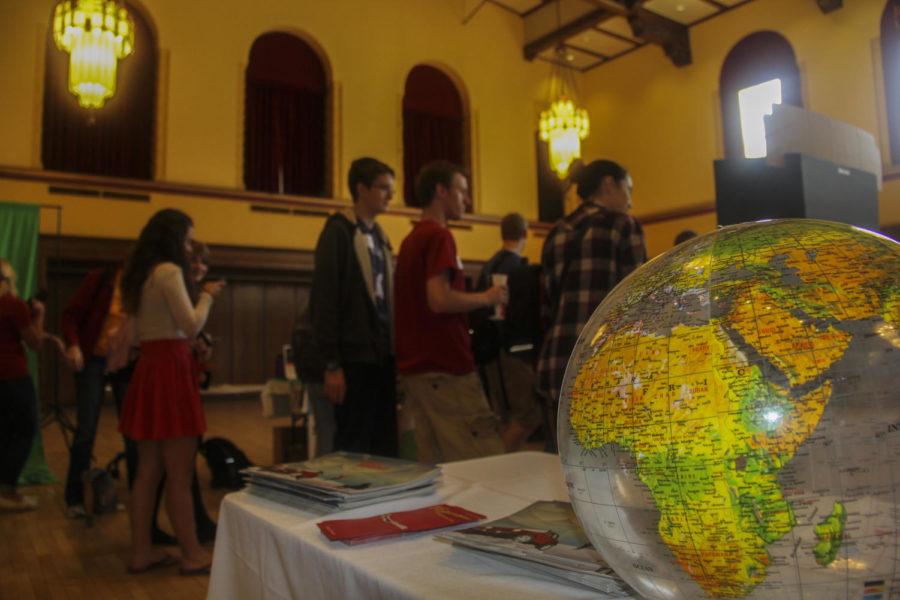Study Abroad offers unique opportunites
Iowa State’s Study Abroad Fair took place Sept. 18. in the Great Hall of the Memorial Union. There are more than 350 programs in 55 countries offered by the Study Abroad Center.
October 14, 2014
Studying abroad gives students the chance to expand their horizons and experience parts of the world that can change their perspective forever.
“They can do hands-on activities that they wouldn’t be able to find at Iowa State,” said Tina Montano, senior in marketing and management and peer adviser at the Study Abroad Center.
Students are at a time in their life where they can have the opportunity to work towards their degree and travel to different parts of the world at the same time.
There are misconceptions about studying abroad that make some students decide against going.
While studying abroad can be expensive in some cases, the costs can be the same as attending Iowa State or even less. Montano said that almost all of the financial aid students are currently receiving can be applied to the cost of studying abroad. Students who are currently receiving scholarships, loans and grants will most likely still receive that aid abroad.
In addition, there are specific study abroad scholarships that a student may choose to apply for.
Another misconception is that some students believe that they do not have the time to study abroad.
“Studying abroad won’t set you behind if you plan the classes that you need that semester and you work closely with an academic adviser,” Montano said.
When students study abroad for a whole semester, they are required to still be a full-time student, which means taking the equivalent of 12-18 Iowa State credits, said Devon Bilsing, graduate assistant at the Study Abroad Center.
For students who do not want the commitment of being abroad for an entire semester, there are also short trips offered over Winter Break, Spring Break and also during the summer.
The perfect time in students’ academic careers to go abroad is different for each person. There may not be a single time that works for everyone, depending on major and the classes the student will have to take abroad.
“The most popular year is junior year,” Bilsing said.
Bilsing said that his personal suggestion is for students to study abroad during their sophomore year.
The challenge in waiting longer to go abroad is trying to find equivalent classes offered abroad. The farther along in course work a student is, the harder it can be to find the classes they need, but it is not impossible.
Students who are interested in going abroad should go online and look for the places they can study with their major, and then they should meet with peer advisers to see what fits them best.
All things considered, studying abroad reaps nothing but benefits for students who choose to take advantage of the opportunity. Students will build their resume, make networking connections, learn new cultures and have experiences to talk about with their future employer.
“You build a lot of relationships, you get to travel intensively, you get exposure to different languages and different cultures,” Montano said.
Montano said studying abroad immerses students into new places and helps students learn adaptability, which is a great skill to have.
“You get this global perspective of everything really,” Bilsing said. “It really opens you up to the world.”







